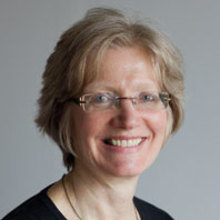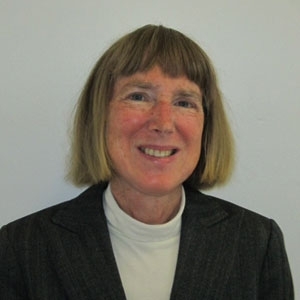Setting the Society’s policy agenda
Issue: World War I
29 May 2014 article

For the Microbiology Society’s Policy Committee, 2014 is about working out how we can position ourselves as the go-to organisation on the future of microbiology. Here we describe what we have done and preview what’s coming up.
What is policy?
Policy is part of the Society’s Strategic Plan, which includes the following actions:
- Influencing policy: to ensure that appropriate scientific information and expert opinion are made available to policy- and decision-makers and that the improvement of resources and infrastructure for microbiology is supported.
- Create a positive policy environment for microbiology: the Society will expand its policy work to ensure that the knowledge gained from the science of microbiology is appropriately considered by policy- and decision-makers.
- The Society will inform policy-makers of the importance of microbiology and encourage them to support the resources and infrastructure necessary for such research, in order to maintain the future of high-quality microbiological research.
Sexually transmitted infections statement launch
In December 2013, the Society took over a room in the House of Commons to launch its policy statement on sexually transmitted infections (STIs). The document highlighted the burden of STIs in Britain, including premature death, pelvic inflammatory disease and infection passed from mother to unborn child.
Professor Maggie Smith, Chair of the Society’s Policy Committee said ‘We take infectious disease policy extremely seriously, which is why we’ve worked with numerous charities and government agencies to produce this report. We highlight the need to support microbiological research to provide new ways of controlling and treating these diseases.’
Professor Pete Borriello was chair of the expert panel who wrote the statement. He clearly outlined his backing for research to develop new diagnostic devices, antimicrobial drugs and an HIV vaccine.
With the support of Dr Julian Huppert MP, the Liberal Democrats’ ‘de facto science spokesman’, and Sir Peter Bottomley MP, a long-term advocate for sexual health, over 100 guests from across the industry, science, patient and public health communities turned out to support the launch.
Dr Huppert filed an Early Day Motion in the House of Commons backing the statement, which 20 MPs signed.
Infectious disease research – where next?
The Chief Medical Officer, Sally Davies, grabbed headlines last year with her campaign on antimicrobial resistance. Virtually unknown outside the health policy community was volume II of her annual report, a 154-page review of the entire gamut of infectious diseases in the UK.
Davies gave three reasons why she chose to focus her report on infectious disease. ‘(1) New infectious diseases are emerging every year and older diseases which we managed to control are re-emerging as they become resistant to our antimicrobial drugs. (2) As advances in medicine in other areas extends lives, it is also creating new groups of generally older individuals that are particularly vulnerable to infection. (3) The supply of new antimicrobial agents has slowed and levels of antimicrobial resistance are increasing, limiting our treatment options.’
She highlighted ‘it is essential that we continue to develop our defences against infectious disease and to do this we must align policy, science, innovation and clinical excellence.’
The Society’s Policy Committee puts particular emphasis on the issue of national research capacity. In 2013, we took active steps by issuing consultation responses, briefings and a policy statement, and attending parliamentary meetings.
A recent paper by Mike Head et al. published in the Journal of Antimicrobial Chemotherapy raises questions about our infectious disease research capacity. Head and colleagues showed that the UK’s public sector capacity is seriously underpowered in areas such as gonorrhoea, yet these are also the areas that are most pressing in terms of antimicrobial resistance.
We would like to know:
- Do we have the research capacity to respond to the major infectious threats?
- If not, what research areas need strengthening?
- What could the learned societies do to help?
With these questions in mind, we have formed an alliance with six other learned societies: the Biochemical Society, the British Pharmacological Society, the British Society for Antimicrobial Chemotherapy, the Royal Society of Chemistry, the Society for Applied Microbiology, and the Society of Biology.
This alliance intends to bring about real change in the research landscape, but it can only succeed with member input – so please support us by getting involved!
Profiles of the Policy Committee: three new members

NAME: PAT GOODWIN
WHY I JOINED THE POLICY COMMITTEE:
I have enjoyed dealing with a range of policy issues in previous roles and welcome the opportunity to be involved in the development of policy relevant to the Microbiology Society.
WHAT ISSUES MATTER MOST TO ME:
I think that it is important that the Society continues to address key issues relevant to the future of UK science as well as those specific to microbiology.

NAME: SCOTT NICHOLSON
WHY I JOINED THE POLICY COMMITTEE:
Although working most of my career as an NHS scientist and now a PhD student, my long-term career aspirations are political. I joined with the aim of using my political knowledge and experience to aid the Committee’s work but also to gain a greater understanding of research policy.
WHAT ISSUES MATTER MOST TO ME:
I feel that antimicrobial resistance is as great a threat to mankind as climate change and would like to make policy-makers more aware of this issue. I disagree with the disproportionate allocation of research funding to the South East of England and would like to see investment in research in poorer areas. I would also like the general population to see careers in science as more than merely academic research and for students from poorer backgrounds to have the confidence to undertake them.

NAME: MAGGIE SMITH
WHY I JOINED THE POLICY COMMITTEE:
I joined the policy Committee because I wanted to get involved in issues that affect people generally. Policy is an opportunity to really think about big issues, and that is different and refreshing from doing mostly reductionist research.
WHAT ISSUES MATTER MOST TO ME:
Antibiotic resistance, public perception of issues associated with genetically modified organisms and synthetic biology, science funding, training and opportunities for young microbiologists, and the lack of scientists generally in politics.
POLICY COMMITTEE MEMBERS ARE:
Maggie Smith (Chair), Pat Goodwin (Chair Elect), Nigel Brown, Martin Cranage, Colin Harwood, Scott Nicholson, Gill Stephens and Jeremy Webb.
Shaping the future of microbiology
Do you like to put the world to rights in the coffee room, in the bar, or around the dinner table? The Microbiology Society Policy Committee wants members to put forward their ideas about the future of microbiology.
In partnership with the Society for Applied Microbiology, the Society will be launching a pilot policy workshop at a university venue in the summer. This workshop will ask participants to consider the question: ‘What are the most pressing issues that concern you as a professional microbiologist?’
Your answers will be used to drive the Society’s policy activities through to 2016.
Get involved – send your ideas
Email the Policy Officer at [email protected]
WILLIAM BURNS
Policy Officer
MAGGIE SMITH
Chair of the Policy Committee


